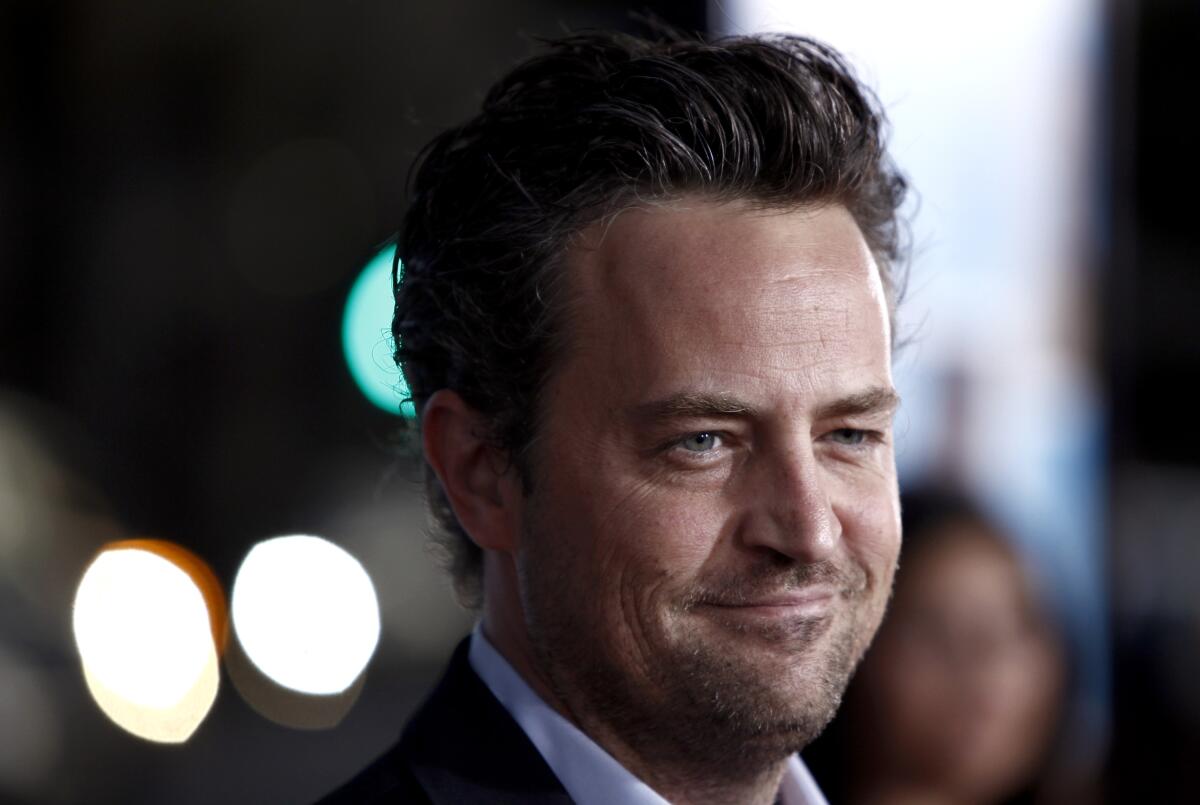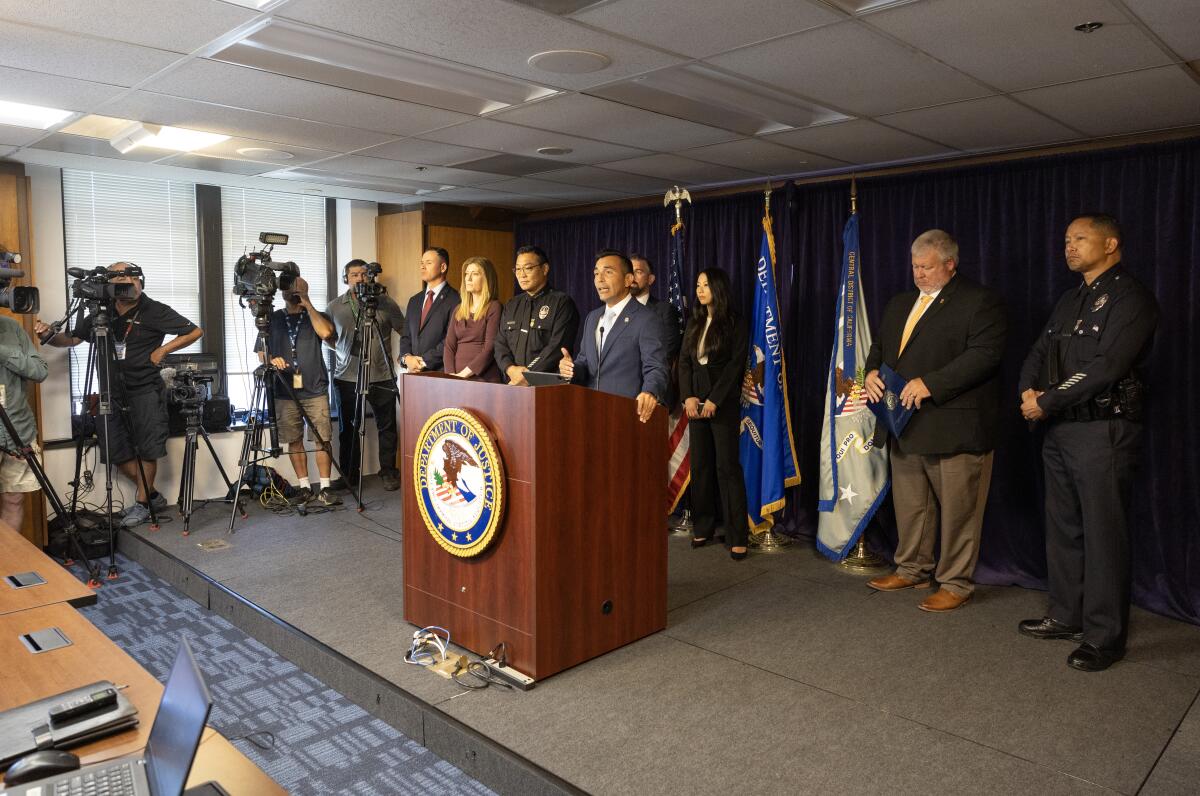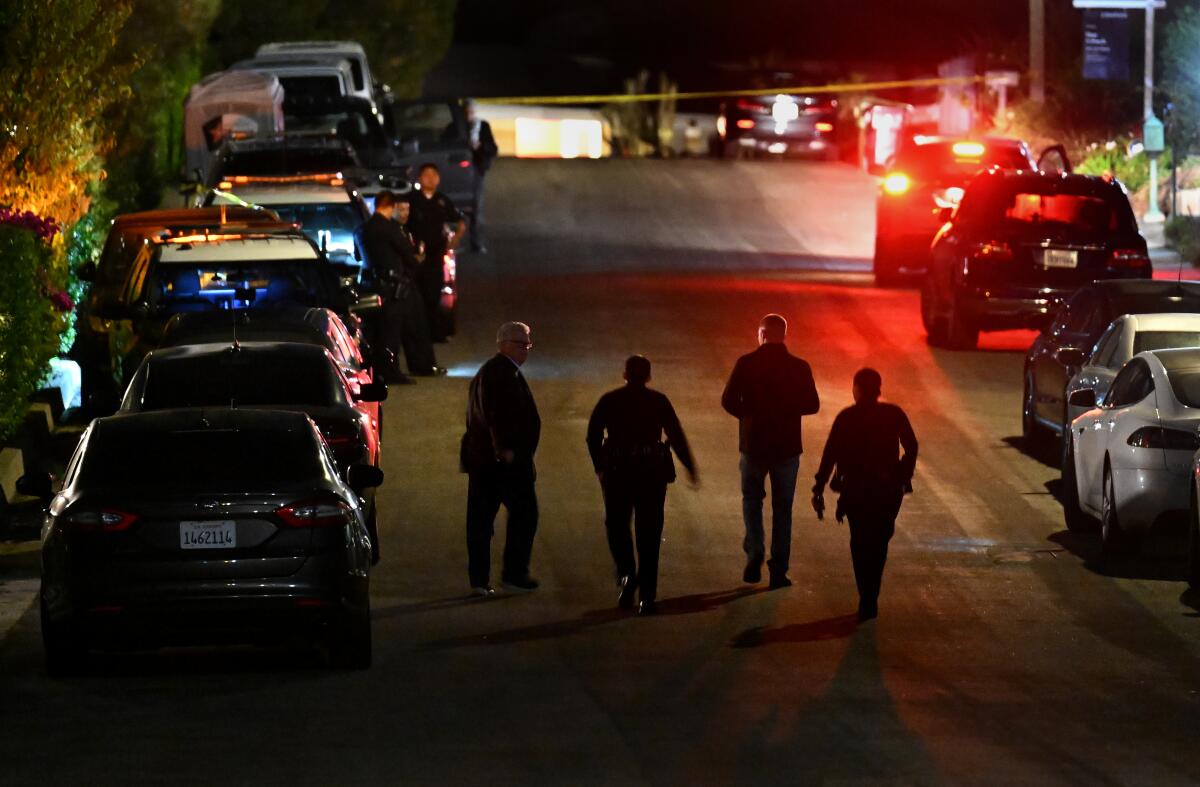-
Winter Storm Is Bringing at Least 6 Inches of Snow to the Northeast - 35 mins ago
-
Texans’ DeMeco Ryans Seemingly Takes Shot at NFL Officiating Following Loss to Chiefs - 2 hours ago
-
5 major banks offer mortgage relief in fire-ravaged L.A. areas, Newsom says - 5 hours ago
-
How to Watch Texans vs Chiefs: Live Stream NFL Divisional Playoffs, TV Channel, Prediction - 7 hours ago
-
What Border Crisis? Mexican Migrant Shelters Are Quiet Ahead of Trump - 11 hours ago
-
Southern California in ‘uncharted territory’ as fire weather returns all next week - 11 hours ago
-
New Trump Meme Comes With a Legal Waiver - 12 hours ago
-
Mexican Mafia leader offered protection to El Chapo, prosecutors say - 18 hours ago
-
H-E-B Food Recalls: Full List of Products Impacted - 18 hours ago
-
Explosions Heard in Ukraine’s Capital - 21 hours ago
Matthew Perry’s shocking last month on ketamine: ‘I wonder how much this moron will pay’
Authorities have unveiled a troubling narrative of the weeks leading up to the death of “Friends” star Matthew Perry.
Prosecutors on Thursday charged five people in connection with the death of the actor, who was found in the hot tub of his Pacific Palisades home on Oct. 28. Trace amounts of ketamine — which is sometimes used to treat depression — were found in his stomach, according to the Los Angeles County medical examiner.
But the level found in his blood was about the same as would be used during general anesthesia, his autopsy showed.
Federal prosecutors allege that Perry’s personal assistant, Kenneth Iwamasa, worked with two doctors — Mark Chavez and Salvador Plasencia — and drug dealers Jasveen Sangha and Erik Fleming to obtain thousands of dollars’ worth of ketamine for the actor, who had long struggled with addiction.
U.S. Atty. Martin Estrada said at a news conference that the defendants “took advantage of Mr. Perry’s addiction to enrich themselves.”
Here is a timeline of events based on the indictment. None of the defendants could be reached for comment and none have entered pleas.

Matthew Perry arrives at the premiere of “The Invention of Lying.”
(Matt Sayles / Associated Press)
Seeking the drug
A month before Perry’s death, Plasencia learned that the actor was interested in obtaining ketamine, a legal medication commonly used as an anesthetic. It can be abused recreationally, with users drawn to it for its dissociative effects.
After learning of Perry’s interest, Plasencia contacted Chavez, who previously operated a ketamine clinic, to obtain the drug to sell to the actor, authorities said. In text messages to Chavez, Plasencia discussed how much to charge Perry for the ketamine, stating, “I wonder how much this moron will pay” and “Lets find out,” according to court records.
Ketamine has been increasingly offered “off-label” at private clinics in an effort to treat depression and other mental health disorders.
Experts have said some people also snort or inject ketamine recreationally to experience euphoric or “dissociative” effects that cause the users to feel separated from their own body. At very high doses, it can make people feel immobilized and spur hallucinations. The drug can complicate breathing and increase demands on the heart, experts said.

A vial of ketamine.
(Associated Press)
$11,000 for 50 vials
The doctors distributed 20 vials of ketamine to Perry for $55,000 in cash, charging him $2,000 for a vial that cost Chavez $12, authorities said.
Court records show that in mid-October, Perry’s personal assistant, Iwamasa, also began obtaining ketamine for Perry from Sangha and Fleming, who provided the drugs at a lower cost. Sangha sold about 50 vials of the drug to the actor for $11,000, authorities said.

U.S. Atty. Martin Estrada announced arrests in the drug-related death of actor Matthew Perry.
(Myung J. Chun / Los Angeles Times)
Drug makes Perry ‘freeze up’
Federal prosecutors allege Plasencia taught Iwamasa how to inject Perry with ketamine, sold the assistant the drug and left vials of it for Iwamasa to inject into the actor. At one point, a large dose caused Perry to “freeze up,” prosecutors said. The doctor is also accused of injecting Perry with the drug inside a car in a Long Beach parking lot.
In the indictment, Plasencia, 42, was accused of giving officials falsified documents showing a medical treatment plan for Perry that claimed he was being given a maximum dose of 60 milligrams over 24 hours. In fact, prosecutors say, Perry was injecting far higher doses.

Police investigators walk along the street where Matthew Perry’s house is in Pacific Palisades.
(Wally Skalij / Los Angeles Times)
The day Perry died
According to a plea agreement signed by Iwamasa, he gave Perry his first ketamine shot around 8:30 a.m. on Oct. 28, the day he died. He gave him a second injection less than an hour later and a third shot in the afternoon.
Perry demanded Iwamasa “shoot me up with a big one,” according to Iwamasa.
He complied. Perry headed for the hot tub of his Pacific Palisades home, and Iwamasa left to run errands.
When he returned, Perry was dead in the hot tub.
The medical examiner concluded the death was an accident.
The high levels of ketamine found in his blood could cause “lethal effects” from cardiovascular overstimulation and respiratory depression, the Los Angeles County medical examiner said in a report. Other contributing factors in the actor’s death included drowning, coronary artery disease and the effects of buprenorphine, a medication used to treat opioid use disorder.
Source link












